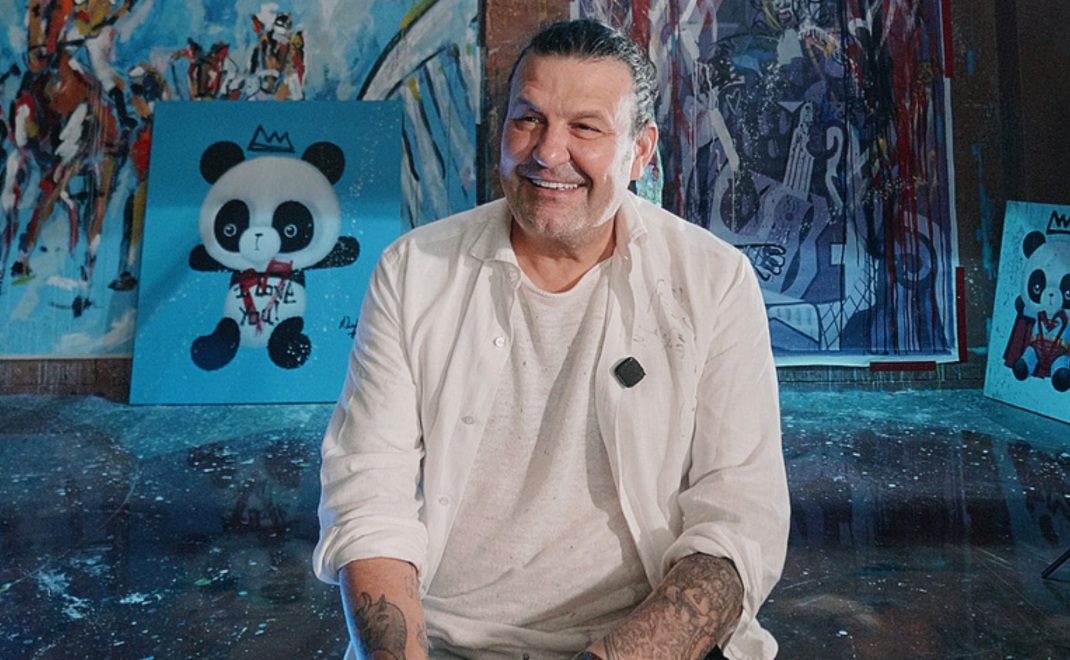Masha Pearl, Dedicated To Helping Holocaust Survivors
For several years now, Masha Pearl has dedicated her life to The Blue Card, the highly praised organization in the United States solely dedicated to helping survivors of the Holocaust.

Photo Credit: Courtesy of The Blue Card
The Blue Card’s impeccable reputation and 86-year history as a top organization is currently led by Pearl, who serves as Executive Director. It was founded in 1934 in Germany by the Jewish community there to help those that had already started seeing restrictions on business, employment, and other types of oppression by the Nazis. It was established once again in 1939 in the United States to help those that had escaped the persecution.
The name of the organization comes from blue cards that were given to Jewish donors who raised funds for others in their community that had lost their income. For record-keeping, a holder’s blue card was stamped every time they made a donation.
“The founders who started the organization in the Nuremberg area emigrated to the United States, to the Washington Heights area of New York,” she says about the nestling of the organization in North America. “They started helping those that were coming over to this country that had either fled Nazi oppression or, after liberation and being reacquainted with their families in DP camps in Germany or other parts of the world, ended up in the United States and were helped by The Blue Card.”

Photo Credit: Courtesy of The Blue Card
Charity Navigator has recognized The Blue Card with consecutive Four-Star ratings, its highest level. The Better Business Bureau has also selected the organization as an Accredited Charity, among other accolades that set it as a standard-bearer in philanthropic efforts.
The Blue Card is active in 35 states, with its headquarters in New York. “We are helping survivors in places where there are large Jewish communities and also in places with much smaller communities, such as Poplar, Tennessee, Cheyenne, Wyoming; Beaverton, Oregon; Lake Havasu, Arizona, and Palm Desert, California. We have a very large constituency in Florida,” Pearl says. “Florida is an area that many survivors have settled in and have lived there pretty much their whole lives or spend at least half the year there. It is an area that we are constantly targeting to make sure that we are doing all we can, meeting all the needs, and keeping an ear and eye out to the emerging needs as they come up.”
Pearl and The Blue Card as a whole put a magnifying glass on the unfortunate fact that anti-Semitism is still in existence while many, if not most, outside the Jewish community get periodical reminders of it, such as the October 2018 shooting that took place at the Tree of Life Synagogue in Pittsburgh, Pennsylvania. She emphasizes the importance of the survivors and their experiences as a guiding light to tell the story of the Shoah. “The number of survivors is decreasing, and the need to hear their voices and stories, and learn from the experiences they endured that they can pass on to younger generations is so important. We have survivors who are emotionally able to recount their experiences. We made a concentrated effort to address anti-Semitism and violence [in Pittsburgh and everywhere else]. The key is to educate younger generations to speak at schools, to not be silent, and to recount what happened in history to prevent it from happening again. Our primary mission is financial assistance to survivors. Additionally, we realize that opportunities for Holocaust Survivors to educate others are time-limited, that is why we pair younger students that are either having a birthday or Bar/Bat Mitzvah with survivors who were at that age when their lives were uprooted.”
With survivors of different age ranges, their needs have evolved, and so has The Blue Card, while keeping true to its original mission of providing financial support.
“The survivors that Blue Card is working with that are in their 80s, 90s and even beyond don’t have an adequate support system,” she says. “Blue Card is there for them and has become part of their family, helping them maintain their independence and maintain their emotional well-being.”
Some of the financial support The Blue Card provides includes emergency cash assistance, preventing eviction or utilities being turned off, helping with medical bills and supplies, home maintenance, repairs and modification, and food assistance. “We are inundated with requests for support. The needs are continuously increasing,” Pearl says. “Our staff receives calls for support. Survivors that have never needed assistance before are now losing their spouses. They are coming forward and turning to us for help.”
While the services of The Blue Card have been clearly defined throughout more than eight decades since it was founded, recent developments have had an immediate effect. The current COVID-19 pandemic caused Pearl and her team of essential workers to combat side effects of social distance and quarantine orders, particularly the isolation that many of their members were suddenly thrust into March earlier this year. Mental health support has been a key focus for The Blue Card these last few months.

Photo Credit: Courtesy of The Blue Card
“For many of the survivors, the quarantine brings back post–traumatic stress. If they have any symptoms [of COVID-19], they are also afraid of going to a doctor or a hospital. During the war, being sick could mean death because you were unable to work and you were deemed useless. This is hard for us to understand because people are running out to try to get tested, but this particular population is avoiding it, and they have very unique attitudes about so many things that are very special to them as a traumatized people. We have organized teleconferences led by psychotherapists in dealing with trauma.” The courses are given in English, Russian, and soon enough will include other languages, as Pearl details.
Passionately, she talks of the outreach from the community to help survivors in these pandemic times. She says, “We have volunteers of all ages getting groceries, wearing their masks, and doing drop-offs [for survivors] regardless of the weather. That’s one of the ways to get through this: to feel connected, and to give back.”

Photo Credit: Courtesy of The Blue Card
Earlier this year, The Blue Card once again participated in the Miami Marathon, entering its biggest team ever: 35 runners. We raised $40,017 for survivors’ needs, and we are so proud of that.”
Humble about the high profile her title provides, Pearl keeps the focus on the ongoing history, development, evolution, and, most importantly, the services of The Blue Card. She has been with the organization for 12 years.
“In my particular case, I have a connection to the Holocaust with my family, so that makes me passionate to get up every day, do this work, and know that it’s such an urgent mission,” she says, on working in an organization that has a personal meaning. She continues, “Many of the people that are involved also come from backgrounds where they either have experienced discrimination or their family had as well. But that’s not a prerequisite. I think it’s just about having a passion and having a global view and understanding that we can bring about change.”
To learn more and donate to The Blue Card, visit http://bluecardfund.org/.












